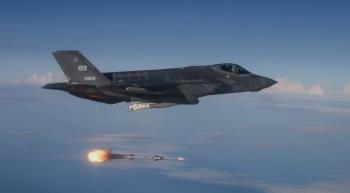Alwaght- Managing Director of the National Iranian Oil Company (NIOC) said Russians would soon start “executive operations” on developing two oil fields in Iran.
Mohsen Khojastehmehr made the announcement on the sidelines of Iran Oil Show, an international oil, gas, refining and petrochemical exhibition, which opened in Tehran on Friday. He did not give further details.
Since the January visit to Moscow by President Ebrahim Raeisi who was accompanied by a number of oil executives, there has been speculation about the participation of Russian companies in Iran’s oil projects. Oil officials, however, have remained tight-lipped or opted to only speak in general terms.
Khojastehmehr visited Moscow for “final talks” on contracts discussed by Minister of Petroleum Javad Owji. Media reports at the time said Russian firms had agreed to offer investment or technology to Iranian oil and gas projects or participate as contractors.
Last November, Russia's second-largest crude oil producer Lukoil said it would be happy to return to talks on its Iranian oil projects, but was waiting for the outcome of the Vienna talks on removing US sanctions on the Islamic Republic.
"We are interested in coming back to these fields. A lot of work has been done some time ago, we know these fields and their geology," Lukoil CEO Vagit Alekperov said.
Lukoil was in talks with Iran to develop the Ab Teymour and Mansouri oil fields, but put those plans on hold in late 2018 after the US pulled out of the Iranian nuclear deal and reimposed sanctions on the country's oil industry.
At the time, Russian companies had signed a record number of oil and gas contracts with Iran since the lifting of sanctions on the Islamic Republic in early 2016.
In 2011 when the US and the Europeans intensified sanctions on Iran, Lukoil pulled out of a joint project with Norway’s Statoil which included their discovery of oil in Iran’s Azar and Changuleh fields.
Iran and Russia signed a dozen cooperation agreements covering energy, railway, agriculture, pharmaceuticals and tourism in June 2019, giving rise to hopes that Moscow had opted to ignore the US sanctions.
The agreements included cooperation on exploration, recovery and production of oil, and investment in oil, gas and petrochemical industries.
Iranian officials said then as many as 12 projects in the petroleum sector had been presented to Russia’s Gazprom, Rosneft, Gazprom Neft, Zarubezhneft, Taftneft and Lukoil for development.
President Vladimir Putin also said Russia was prepared to continue its oil investment in Iran to the tune of $50 billion despite the US sanctions, but the country apparently backed down on those plans as the sanctions set in.
Russia can learn from Iran
Russia’s war in Ukraine and a broad array of sanctions imposed by the West has drastically changed Moscow’s trade dynamics with the global economy, where the country sees itself in the same boat with Iran and open to business without worrying about its consequences.
Until the Ukraine war, Iran was the most sanctioned country in the world, according to Castellum.Ai, which tracks sanctions. Russia now holds that record and the two countries are in what analysts call "a marriage of convenience" that is likely to grow stronger as the war in Ukraine escalates.
"Common interests in helping the other evade sanctions are important to these dynamics in Russia-Iran relations," Giorgio Cafiero, CEO of Persian Gulf State Analytics in Washington DC, told CNN last month.
Russian Transport Minister Vitaly Savelyev has said his country is "studying the case of Iran" to help it deal with sanctions on maintenance and spare parts. Iran still operates some planes purchased before the 1979 Islamic Revolution that ruptured its ties with the West.
"This bilateral relationship will likely grow stronger as the war in Ukraine rages on, especially if the Vienna talks fail to revive the JCPOA," Cafiero added, referring to the 2015 nuclear deal between Iran and six other countries, which included Russia.
He noted that the failure to revive the JCPOA will further push Tehran to make itself useful to the Kremlin.
After decades of Western economic constraints, the Islamic Republic has become a master of circumventing and beating illicit sanctions. Today, Russia is living a similar scenario as the West clamps down on Moscow in an effort to cripple its economy.
On Friday, Petroleum Minister Owji touted Iran’s success, saying the oil sector’s constant growth over the past years proves that US sanctions have failed.
The oil industry is at the forefront of Iran’s battle against US sanctions, Owji said on the sidelines of the Iran Oil Show which has attracted participants from Italy, Spain, the United Arab Emirates, South Korea, Switzerland, Germany, Ukraine, South Africa, and Belgium.
The minister announced that Iran will begin implementing 25 major oil projects. His deputy Khojastehmehr on Sunday awarded around $3 billion worth of petroleum contracts to domestic firms.
Khojastehmehr said the projects will enable Iran to increase its natural gas production by 60 million cubic meters per day and crude and condensate production by 37,000 barrels per day (bpd) and 50,000 bpd, respectively.
Iran has relied on domestic companies for building out its huge oil and gas sector since 2018 when international oil giants left the country under American pressure.
The sanctions have been a boon to domestic manufacturers who have thrived under the new situation through mobilizing their resources to fulfill some of the tasks which were an exclusive competence of foreign companies.



























